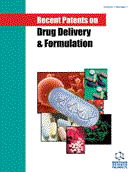Abstract
Background: While protein therapeutics are invaluable in managing numerous diseases, many require frequent injections to maintain therapeutically effective concentrations, due to their short half-life in circulation. PolyXen™, a platform and patented technology employing biodegradable, non-immunogenic and hydrophilic Polysialic Acids (PSA) for drug delivery, is being utilized to overcome such limitations, thereby potentially enabling the clinical utility of a broad range of protein therapeutics. Here, we report the recent progress on two development candidates, polysialylated deoxyribonuclease I (PSA-DNase) and polysialylated erythropoietin (PSA-EPO).
Methods and Results: Chemical polysialylation of DNase I (DNase) using PSA with different chain length at various conjugation sites led to improved stability against proteases and thermal stress, and slightly reduced enzymatic activity. Polysialylation of EPO resulted in retention of protein structure and PSA-EPO remained biologically active. PSA-EPO had a significantly prolonged circulating half-life (e.g. t1/2 of PSA-EPO = ~400 h in patients after subcutaneous administration, aimed for once monthly administration, vs. t1/2 of EPO = ~22 h; administered twice or thrice weekly), and retained in vivo efficacy.
Conclusion: This approach has been clinically validated in phase I (in healthy volunteers) and II studies of PSA-EPO [for managing anemia in patients with chronic kidney disease (CKD)].
Keywords: Biodegradability, drug delivery, immunogenicity, pharmacokinetics, pharmacodynamics, polysialic acids, colominic acid, protein therapeutics.
Graphical Abstract
 38
38 9
9










